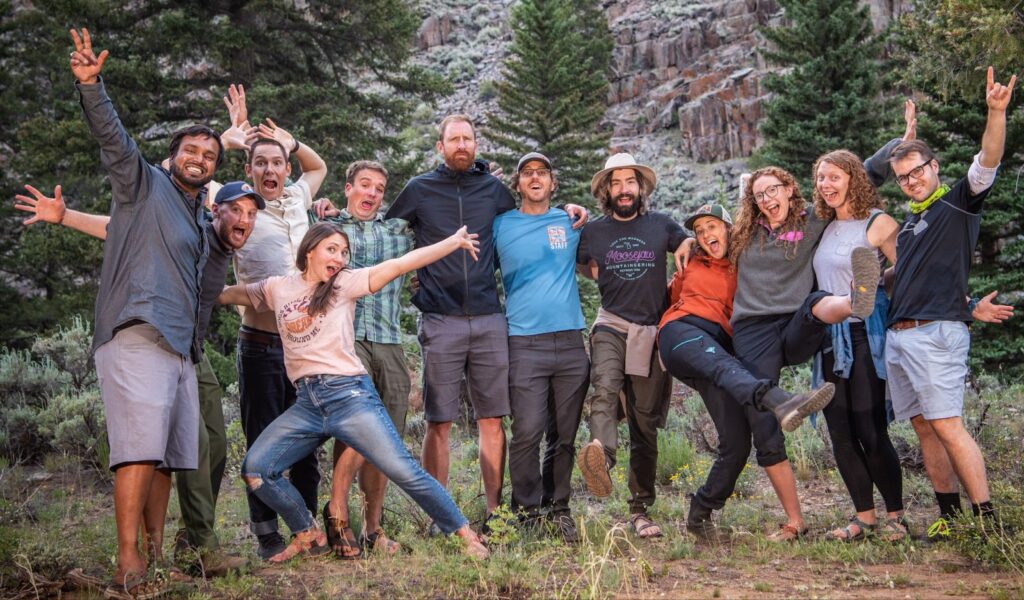David Assad is the Director at the ICELab @ Western Colorado University based in Gunnison, Colorado. The ICELab is building an Outdoor Industry Hub that includes the Moosejaw Outdoor Accelerator program, the Outdoor Industry Funding Summit, as well as a plethora of mentors that assist companies looking for high growth and big impact.
Since 2017, the ICELab (Innovation, Creativity, Entrepreneurship Lab) has been working closely with entrepreneurs who are focused on innovation. David has a background in corporate finance in multiple industries.
For more details, visit their website here.
Today, we sit down with David to learn more about his entrepreneurial journey.
Q: How did you start your journey into entrepreneurship?
David: I don’t consider myself an entrepreneur, but I’ve worked with them since I was around 8 years old. I play an advisory role with multiple entrepreneurs daily as the Director of the ICELab @ Western in addition to running programming directed at helping entrepreneurs with their weaknesses or blind spots.
Q: What entrepreneurial tricks have you discovered to keep you focused and productive?
David: Prior to working at the ICELab, I worked in companies as small as 10 people and as big as tens of thousands. A dedication to improving customer experience all day, every day is the thread that connects all of the businesses, whether business consulting, transportation and trucking, or smart metering networks.
If the customer knows the employees and owner of a company are focused on customers, the amount of forgiveness for mistakes and appreciation for a job well done by the customer cannot be overestimated.

Q: How do you stay organized with such a busy schedule?
David: Direct reports come first with the customer in mind. Do they know what to do next and why they are doing it? For both efficiency and morale reasons, this is number one on the list every day. An entrepreneur can make time for doing operational work throughout the day and prioritization comes naturally when you have a grasp on everything happening in the business.
Often, employees don’t have the luxury of all of this knowledge and therefore prioritization is more difficult for them and often requires input from someone with the whole map of the business.
Q: What is the most memorable thing you’ve done since you started your business?
David: I’ve begun teaching at the collegiate level. Building critical thinking skills instead of regurgitating facts is an important part of the New Venture Creation course at the CU Boulder & Western Colorado University partnership program.
Communication is another vital skill we cover, and watching students present their businesses on the final day is something that will stick with me forever. Entrepreneurship is basically understanding a customer problem and building a solution, often on the fly. Logical and empathetic thought processes are key and can be learned.
Q: If you were to write a book about yourself, what would you name it?
David: I would never write a book about myself. If I had to, I would name it “Customer Value First.”
Q: What motivates you?
David: I am extremely passionate about enabling entrepreneurs, our modern-day heroes. They anticipate the needs of individuals and companies and build a solution for them. This value creation is what brings about a better world for everyone. The free market creates the best roadmap, which is literally trillions or more individual decisions every day by individual people.
Optimization through decentralized decision-making is one of the most interesting things I’ve ever contemplated. Entrepreneurs make more decisions per day than the average person, and when they are good at it, they change the world. I just hope to help them a little bit when I can.
Q: What key activities would you recommend entrepreneurs invest their time in?
David: Find at least one mentor who has built a business before and meet with them monthly. They have an idea of what you are going through and may be able to help you get to the right answer faster on your biggest problem at any given time. Experience is valuable. People who have it are usually more than happy to share it.
Q: What is your ‘one-sentence’ piece of advice you’d like to give to someone who wants to become an entrepreneur, coach, or business owner?
David: Find someone who deeply understands the product/service being provided, how to sell it, and how to express it in financial terms; hopefully, you are that someone for two of those three verticals.
To keep up to date with David and his journey, connect with him on LinkedIn.